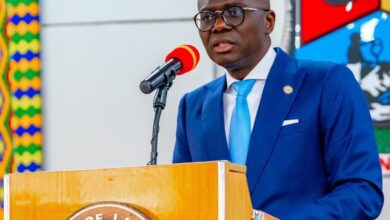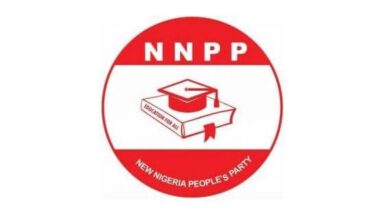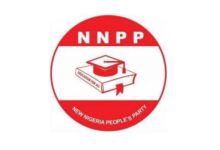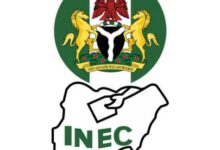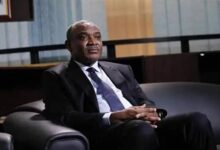Why identities of 753 forfeited houses’ owners can’t be revealed – EFCC, says it’s criminal to do so
*Wait till end of the whole stories, Respondents tell Nigerians
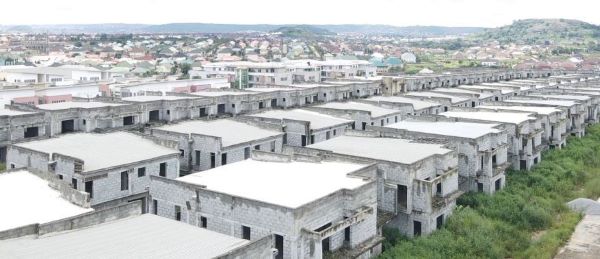
By OUR REPORTERS
“It is important to note that the substantive criminal investigation on the matter continues. It would be unprofessional of the EFCC to name individuals whose identities are not directly tied to the title documents of the properties,” EFCC’s Oyewale stated.
Justice Jude Onwuegbuzie on Monday ruled for the final forfeiture of a massive estate in Abuja measuring 150,500 square meters, comprising 753 duplexes and other apartments.
This marks the single largest asset recovery by the Economic and Financial Crimes Commission (EFCC) since its establishment in 2003.
The estate is located on Plot 109, Cadastral Zone C09, Lokogoma District, Abuja.
The forfeiture, involving a former high-ranking government official, underscores EFCC’s mandate to ensure that proceeds of corruption and fraudulent activities are returned to the Federal Government.
The case relied on Section 17 of the Advance Fee Fraud and Other Fraud-Related Offences Act No. 14, 2006, and Section 44(2)(b) of the 1999 Constitution.
In delivering the judgment, Justice Onwuegbuzie stated, “The respondent has not shown cause as to why he should not lose the property, which has been reasonably suspected to have been acquired with proceeds of unlawful activities. The property is hereby finally forfeited to the federal government.”
The final forfeiture followed an interim forfeiture order issued by the same judge on November 1, 2024. The EFCC has been investigating the former official, who fraudulently acquired the estate.
This forfeiture is part of the Commission’s broader strategy to deprive suspects of criminal proceeds, as outlined in Section 7 of the EFCC Establishment Act.
The Act empowers the EFCC to investigate and seize assets when individuals’ properties and lifestyles are inconsistent with their legitimate income. EFCC Chairman Ola Olukoyede has emphasized the critical role of asset recovery in combating corruption.
“If you understand the intricacies of financial crime investigations and prosecutions, you will realize recovering even one billion naira is a war,” Olukoyede explained.
He highlighted the importance of simultaneous investigation and asset tracing to weaken suspects’ ability to resist investigations, adding that, “Our modus operandi has changed. The moment we begin an investigation, we begin asset tracing. That was what helped us achieve this milestone.”
Under Section 24 of the EFCC Establishment Act, once assets linked to suspected economic crimes are identified, the Commission applies for interim forfeiture. Upon court satisfaction of prima facie evidence, a final forfeiture is secured.
A source said this landmark recovery not only underscores EFCC’s operational efficiency but also reflects President Bola Ahmed Tinubu’s commitment to the anti-corruption fight. It serves as a strong disincentive to corruption and reinforces the administration’s resolve to tackle financial crimes head-on.
The Economic and Financial Crimes Commission, however, warns that it is criminal to reveal property owner’s identity in a situation like this especially where the suspect is not directly linked with the names on the documents.
This warning followed insinuation of media trial against the EFCC in certain corners when media reports went to town saying the seized 753 houses belong to for Central Bank of Nigeria Governor Godwin Emefiele.
The accusers of EFCC are saying where an anti-corruption fight has traces of vendetta against a personality, members of the public should not form opinion about whatever report is pushed to the press by whoever until the end of the story especially as the EFCC itself said investigation still inconclusive.
Some of the media reports, playing safe, tied their source linking Emefiele to a claim by pro-democracy advocate, Omoyele Sowore, saying they were court documents that revealed the 753 duplexes and apartments finally forfeited Tuesday were those seized in Abuja from the former CBN Governor.
According to a report, the properties located on Plot 109, Cadastral Zone C09, Lokogoma District, were allegedly acquired using kickbacks from contractors, according to affidavits presented in court.
The documents, reportedly published by Omoyele Sowore, a presidential candidate in the 2023 election, detailed how Emefiele allegedly used intermediaries, including Ifeanyi Omeke, a Deputy General Manager at Zenith Bank, to purchase and secure title documents for high-value properties in Lagos and Abuja.
Sowore, who shared the documents on Tuesday, accused the EFCC of attempting to shield Emefiele’s identity in its official announcement.
“It is unacceptable that the EFCC would recover properties from a high-profile individual and still seek to hide the person’s name. This is an act of complicity,” he argued.
Responding to Sowore’s allegations, the EFCC clarified that its decision to withhold the name of the estate’s owner was in line with professional and legal standards.
In a statement issued by its Head of Media and Publicity, Dele Oyewale, the Commission explained that the forfeiture was secured through civil proceedings under Section 17 of the Advance Fee Fraud Act.
This legal framework allows for forfeiture of assets in rem (targeting the property) rather than in personam (targeting the owner).
“The allegation of a cover-up is unfounded,” Oyewale said.
“The proceedings were conducted in accordance with the law, and the forfeiture was duly granted by Justice Jude Onwuegbuzie of the Federal Capital Territory High Court on December 2, 2024.”
The EFCC emphasized that its investigation into the case remains ongoing and cautioned against premature disclosure of individuals linked to the estate.
“It is important to note that the substantive criminal investigation on the matter continues.
“It would be unprofessional of the EFCC to name individuals whose identities are not directly tied to the title documents of the properties,” Oyewale stated.
According to the EFCC, extensive efforts were made to identify the property’s owner, including publishing public notices in national newspapers.




